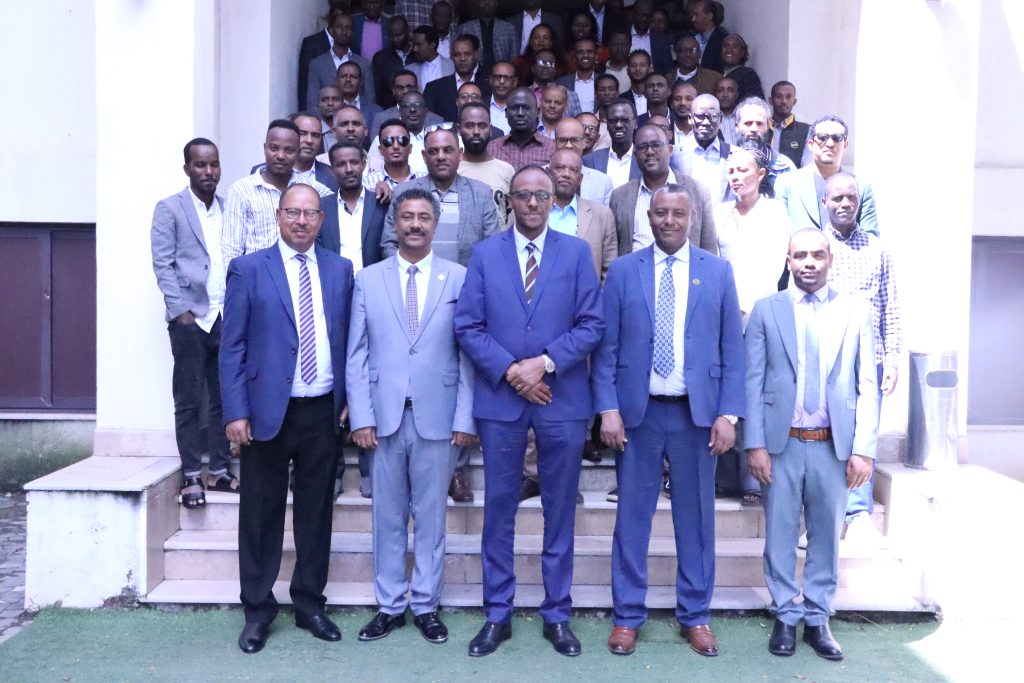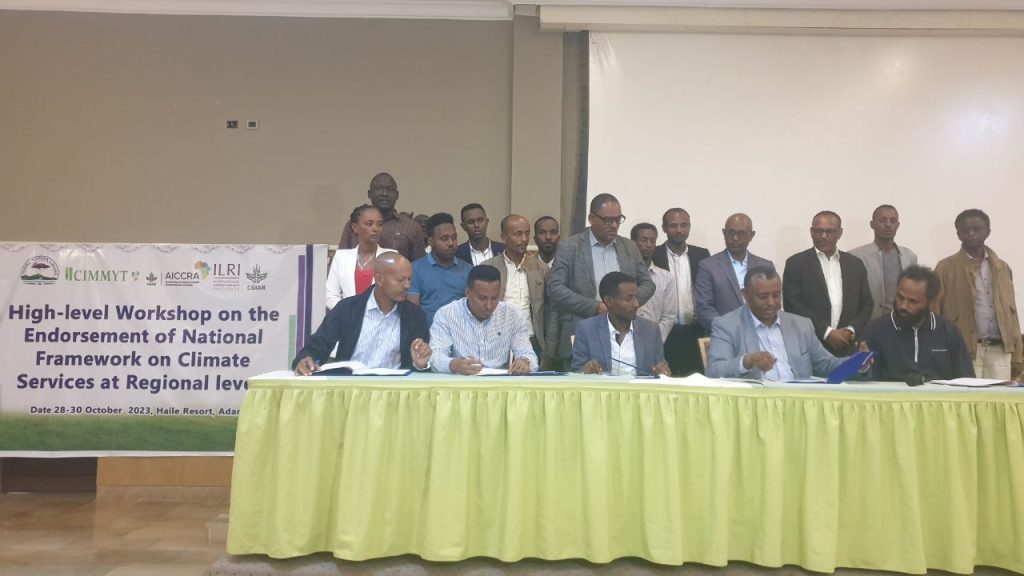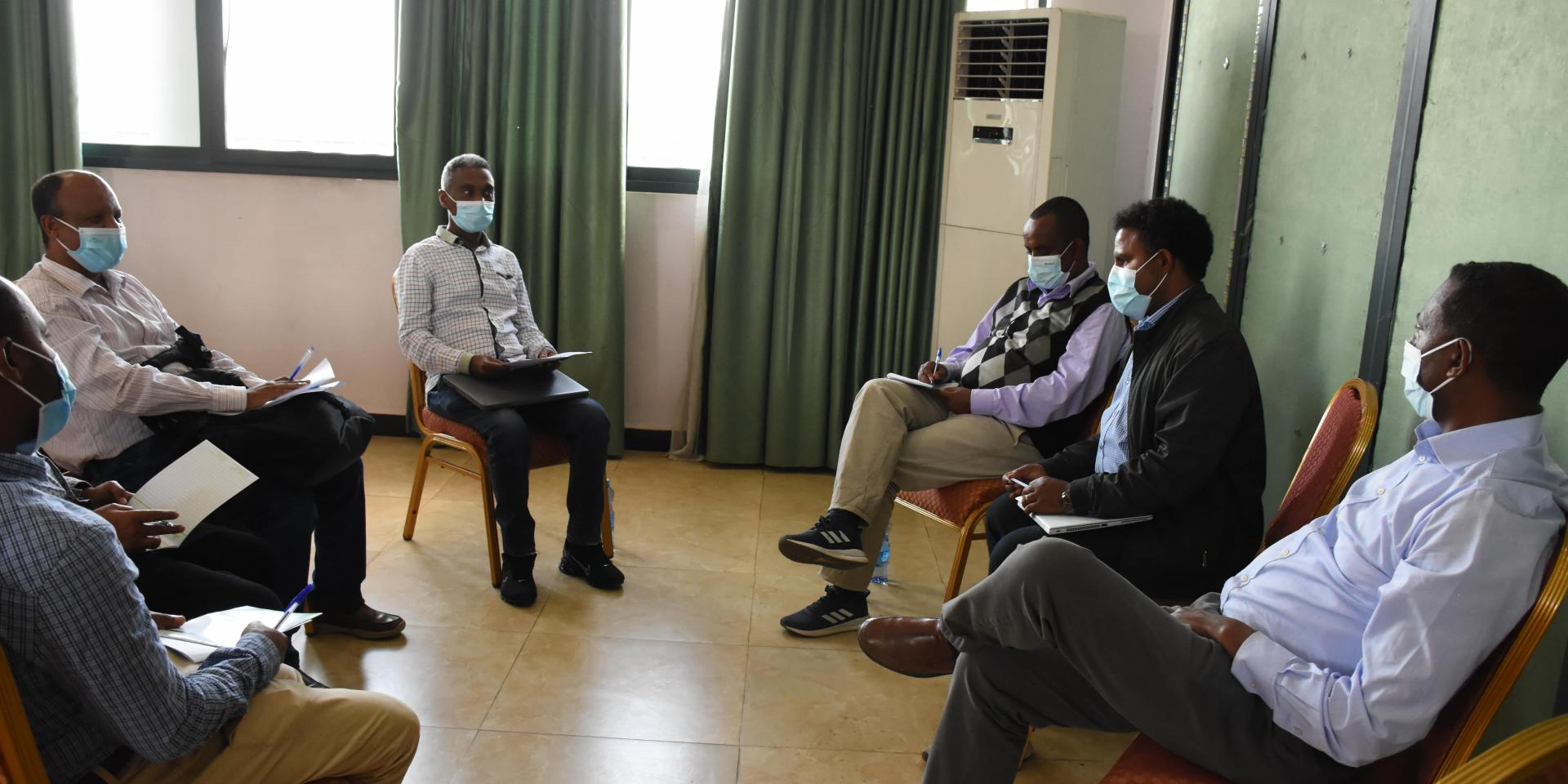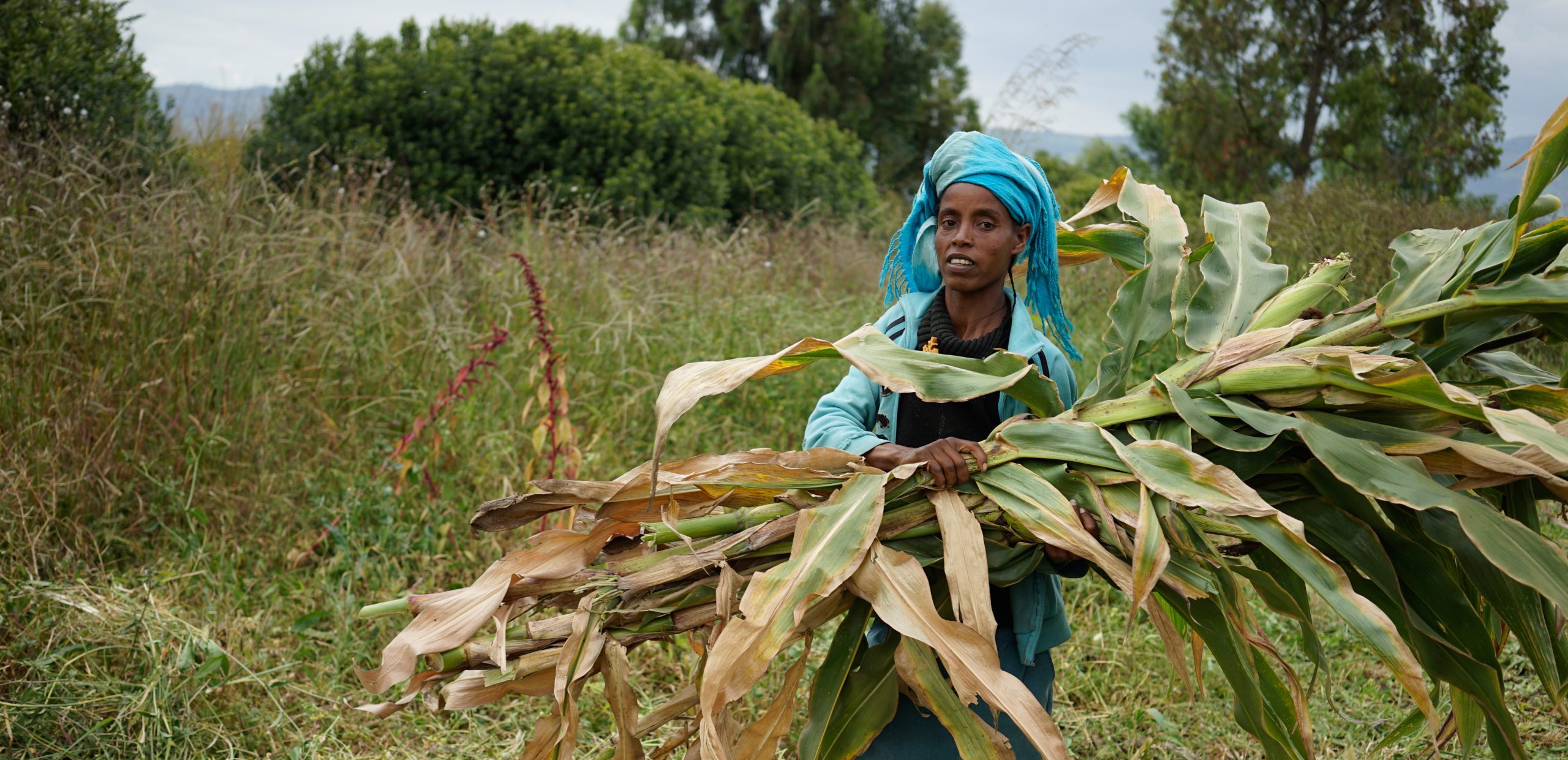In Ethiopia, regional government representatives endorsed in October 2023 the National Framework on Climate Services (NFCS), a tool designed to guide the establishment and delivery of climate services in key sectors: water and energy, agriculture, health, disaster risk management, and environmental protection.
This endorsement by regional state representatives marks an important step towards the implementation at regional and zonal levels of the NFCS, which was adopted at the national level in 2020.

The adoption of the Framework concluded a two-day workshop organized by the Ethiopian Meteorological Institute in partnership with CIMMYT through the AICCRA project, which aims to scale climate-smart agriculture and climate information services for the benefit of millions of small-scale farmers in Ethiopia. The workshop was also attended by ministers, state ministers and heads of federal offices from the sectors affected by climate change.
Responding and adapting to climate change requires that all affected sectors cooperate and collaborate, stressed Fetene Teshome, General Manager of the Ethiopian Meteorological Institute, in his opening remarks. Experts and regional and local representatives should come together to establish a system that can gather quality information and disseminate it to its users, he added.
“We can’t tackle climate change easily, so we have to find ways to live with it and use it to our benefit,” said Habtamu Itefa, minister of water and energy. He urged the workshop participants to approach the NFCS as a system designed to outlive governments and called them to play an essential role in its implementation in their respective regions, zones, districts and kebeles (sub-districts).
“Climate services will bring meaningful changes in agriculture”
Among the sectors most affected by climate change, agriculture accounts for about 40% of the GDP and employs more than 80% of the population, making it the backbone of the Ethiopian economy. It is thus crucial to address climate change impacts on the sector.
CIMMYT Senior Scientist, Kindie Tesfaye, explained how the AICCRA project works to enhance access to climate information services and validated climate-smart agriculture technologies in six African countries, including Ethiopia. As a stakeholder of the project, CIMMYT is training farmers, development agents, and local agricultural experts, and other agricultural value chain actors on the use of climate advisory services in collaboration with LERSHA, a digital platform providing farmers with contextualized weather forecast, inputs, mechanization and financial advisory services.
“We consider climate as a major problem for the country’s agricultural activities because the sector is heavily dependent on rain-fed production system and we believe that implementing this national framework on climate services will bring meaningful changes to the sector enabling it to manage climate risks successfully,” said Kindie Tesfaye.
The AICCRA project supported strengthening the function of the NFCS coordination team for multi- stakeholder engagement, supporting the endorsement of the framework and providing training on resource mobilization for its implementation. The project is also building capacity at different levels, promoting climate smart agriculture.
Productive in-depth discussions
Prior to the NFCS endorsement, participants shared inputs from their respective regions and sectors, providing inputs to the framework. Delegates mostly discussed capacity building needs, information delivery channels, synergetic cooperation among government institutions and mobilization of resources for implementation.

On the second day of the workshop, four different papers were presented on a seasonal climate update for the 2023 Bega season (October to December), on the impacts outlook for the upcoming Bega season, on the national state of the climate, and on climate risk management in agriculture extension.
The plenary discussion that followed was led by Fetene Teshome and offered an opportunity to the participants to raise their concerns on the implementation of the framework in their respective regional states. Many of the participants reflected on how the framework can accommodate the different ecology of various areas and how it can upgrade or replace dysfunctional meteorology infrastructures.
The Climate Risk Curriculum module that was prepared by AICCRA for agricultural extension workers was also launched during the workshop.

 Climate adaptation and mitigation
Climate adaptation and mitigation 
